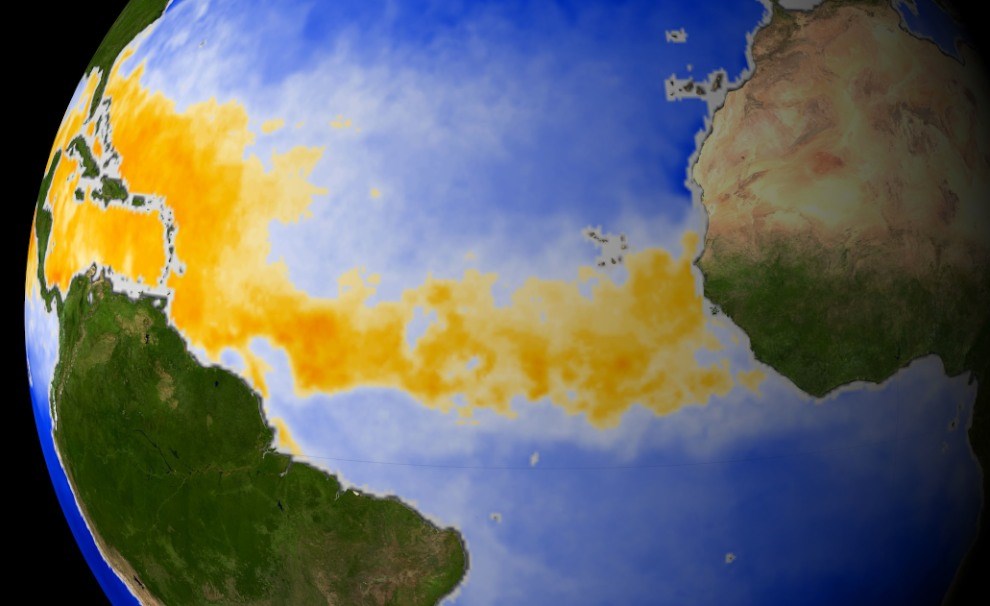Climate-A Race We Must Win
September 23, 2019 | Expert Insights

Background
The world is facing a climate emergency and yet no one seems to care. The climate actions plans finalised in 2015 were based upon an assessment that global temperatures were set to rise 3°C by 2100. Scientists had warned that an increase of up to 3°C would lead to a variety of damaging impacts- the extinction of many species, lethal heat waves, reduction in groundwater and catastrophic sea-level rise. In addition, it increases the possibility that fragile natural systems like the Arctic or Amazon will experience “abrupt and irreversible changes” by melting entirely or drying out.
Worryingly, global emissions continue to rise, hitting record levels and show no signs of peaking. If we take 1990 as a base year, the emissions have increased more than 50% and winter temperatures in the Arctic have risen by 3°C.
The message is clear and stark- as per the Intergovernmental Panel on Climate Change (IPCC), the United Nations climate science body, greenhouse gas emissions must be slashed by 45 per cent by 2030 to keep the rise in temperature below 1.5° C.
Analysis
The Climate Summit currently on in New York will hopefully have world leaders seeking solutions to the debilitating effect that man’s greed and follies have had on our planet. Will they make good on their promises, if any, is something the world has to wait and see.
The clarion call which has gone to national leaders from the UN Secretary-General is clear-present realistic plans during the summit which aim at the reduction of greenhouse gas emission by 45% and to net zero emissions by 2050 over the next decade. The onus now lies on national leaders to give precedence to the health of the planet ahead of narrow nationalistic interests.
The situation is grave, as global efforts to tackle climate change are getting nowhere - a fact so emphatically underscored by the IPCC's 1.5 °C report. The UN Secretary General’s frustration was evident when he wanted a summit where world leaders would only get to speak if they have plans in line with 1.5°C.
Making countries agree that adherence to an even tighter norm (1.5degree C) will be a herculean task for the UN. Furthermore, any hope of implementation was given a red herring when President Trump withdrew from the treaty, calling climate change a “ hoax perpetrated by China”.
Presently Morocco and Gambia are the only countries that comply to 1.5C norm while countries such as Russia, Saudi Arabia, Turkey, USA lie at 4C+. China lies at 4 degree C, although it closed many coal-fired power plants, in the lead-up to the Paris summit. It is reported that coal-burning crept back recently. China has indirectly contributed to increased carbon emissions in other countries due to its Belt and Road Initiative (BRI) which financed new coal plants in client countries.
The UN Secretary Guterres has appealed for four commitments from world leaders ahead of the summit- “no new coal” (new funding/ construction of coal facilities from 2020), “net-zero from 2050” (Commit to carbon neutrality), “No fossil fuel subsidy (Stop the $ 4.7 Trillion subsidy per year) and “Punish Polluters”.
The world can repair the damage that we have inflicted on the environment if we act now. The covenant is that earthlings have to reduce carbon emissions comprehensively and within 12 years cap the rise in global average temperatures to 1.5°C above pre-industrial levels.
Assessment
- Few countries are willing in the short term to pay the economic and political cost. Since dividends will appear only in the distant future, electorally current leaders have little to gain but much to lose economically if they were to follow the prescribed norms. World leaders have to come together to take tough decisions and stand by them, irrespective of electoral compulsions.
- Climate summits while laying down guidelines on reversing climate change, tend to ignore economical transformations and its consequences. For example, in the case of Australia, the suggestion to phase out coal does not include what could be the alternative plan to create sustainable economies. The Summit should come up with plans for the reformed economies in line with sustainable development goals.
- Developed countries have reached their present level of prosperity having no cap on carbon emission and after taking advantage of low-cost fossil fuels for decades. Developing countries are expected to match the emission norms and develop suitable technology like coal gasification to cut emissions. This may be farfetched unless the rich countries dip into their own pockets and come up with free technical and material assistance to poor countries and help tide them over the period of transformation.
- The rift between far-right populists and environmentally minded international leaders is widening and prevents either from finding common grounds to mitigate this common threat.
India Watch
While India is no stranger to hot weather, an intense heatwave across northern India has proven that the threat of climate change is very real and has some catastrophic consequences. Temperatures are reaching unprecedented highs and several parts of the country have recorded some of the highest temperatures in the world.
The heatwave has left many cities without water and even more agricultural land bereft of sufficient irrigation. In the short term, drought can lead to crop failures, but in the long term, food insecurity is imminent. In a nation with over 1 billion mouths to feed, this is a very serious problem.
Read more
Image Courtesy: nps.gov








Comments